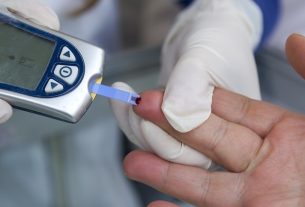Acute kidney failure is when the kidney loses its ability to filter the blood and eliminate substances that can be toxic to the body, causing symptoms such as excessive tiredness, a feeling of shortness of breath, as well as swelling, due to fluid retention in the body.
The main cause of acute renal failure is decreased blood flow to the kidney, which may occur due to dehydration, hypovolemic shock, distributive shock, or cardiogenic shock. Furthermore, it can also arise due to the use of medications, infections, bladder or urethral obstructions, or prostate or cervical cancer, for example.
It is important that acute kidney failure, which is more recently called acute kidney injury, is identified by a nephrologist or general practitioner as soon as the first symptoms appear, as it is a serious condition that requires intensive treatment to increase the chances of recovery. kidney function.
See, in the following video, other symptoms that may indicate kidney failure:
Symptoms of acute kidney failure
The main symptoms of acute kidney failure are:
- Decreased urine production;
- Liquid retention;
- Swelling in the legs, ankles or feet;
- Excessive tiredness;
- Tremor in the hands;
- Feeling of shortness of breath;
- Nausea or vomiting;
- Loss of appetite;
- Mental confusion;
- Cardiac arrhythmias;
- Pain or pressure in the chest;
- Generalized itching;
- Sensation of metallic taste in the mouth;
- Change in level of consciousness.
If these symptoms are present, you should consult a nephrologist or general practitioner so that the diagnosis can be made and the most appropriate treatment can be initiated.
How to confirm the diagnosis
The diagnosis of kidney failure, or acute kidney injury, is made by the nephrologist through the evaluation of symptoms, urine examination and blood test, to measure the amount of creatinine, urea, look for changes in electrolytes and metabolic disorders, such as acidosis metabolic.
Taking care of your health has never been easier!
The doctor may also order imaging tests such as urinary tract ultrasound, abdominal computed tomography or magnetic resonance angiography, to assess the size of the kidneys and bladder, in addition to checking whether there are obstructions in the veins or arteries in the kidneys and assessing the possibility of pre-existing chronic kidney disease.
Possible causes
Acute renal failure is caused by a decrease in blood flow in the kidneys, injuries to the kidney itself, attacks directly on the kidneys (glomeruli or renal tubules), or due to an obstruction of the kidney channels through which urine is eliminated.
The main conditions that can cause acute kidney failure, or acute kidney injury, are:
- Severe dehydration;
- Hypovolemic shock;
- Distributive shock;
- Obstruction of the renal arteries;
- Post-renal obstruction of the bladder, ureters or urethra;
- Kidney stones;
- Direct kidney injury, which compromises renal blood flow;
- Bleeding or severe burns;
- Cardiogenic or septic shock;
- Massive pulmonary embolism;
- Acute coronary syndrome;
- Anaphylactic allergic reaction;
- Thrombotic thrombocytopenic purpura;
- Inflammation in the kidneys, such as glomerulonephritis or acute interstitial nephritis;
- Hemolytic-uremic syndrome;
- Blood clots in the veins and arteries in and around the kidneys;
- Rupture of muscle tissue (rhabdomyolysis);
- Generalized infection;
- Systemic lupus erythematosus;
- COVID-19;
- Multiple myeloma;
- Bladder, prostate, cervical or intestinal cancer;
- Prostate hyperplasia;
- Poisoning by alcohol, heavy metals or cocaine;
- Chemotherapy.
In addition, the use of anti-inflammatory medications such as acetylsalicylic acid or ibuprofen, antibiotics such as penicillin or amphotericin B, or antihypertensives such as angiotensin blockers or angiotensin-converting enzyme inhibitors, or iodine contrast used in blood tests. image.
How the treatment is carried out
The treatment of acute kidney failure, or acute kidney injury, is generally carried out in the hospital with the aim of recovering kidney function and avoiding complications, and should be aimed at treating the condition that led to decreased kidney function.
Some treatment options recommended by your doctor for acute kidney failure, or acute kidney injury, are:
- Venous hydrationif the acute kidney injury was caused by a smaller volume of blood in the body;
- Use of diuretic medicationsto reduce swelling in the body;
- Restricting sodium consumptionphosphorus, potassium and liquids;
- Controlling the amount of potassium in the blood with medications, as the accumulation of potassium in the blood can cause cardiac arrhythmia or muscle weakness;
- Hemodialysisto help eliminate toxic substances from the body.
Treatment of acute renal failure should be continued at home after hospital discharge, following medical recommendations and eating a diet recommended by the nutritionist, which should be a diet low in protein, salt, potassium and phosphorus, as this can prevent kidney overload. . Find out how to follow a kidney failure diet.
Possible complications
Complications of acute kidney failure or acute kidney injury include permanent damage to the kidneys, which can cause chronic kidney disease, fluid accumulation in the lungs or pulmonary edema, cardiac arrhythmia, muscle weakness, metabolic acidosis and even death.
Bibliography
- LEGRAND, Matthew; et al. Pathophysiology of COVID-19-associated acute kidney injury. Nature Reviews Nephrology. 17. 751–764, 2021
- ROSAINT, J.; ZARBOCK, A. Acute kidney injury: definition, diagnosis and epidemiology. Minerva Urol Nefrol. 68. 1; 49-57, 2016
- BRAZILIAN SOCIETY OF NEPHROLOGY. Acute kidney failure. Available at: <https://www.sbn.org.br/orientacoes-e-tratamentos/doencas-comuns/insuficiencia-renal/>. Accessed on November 11, 2021
- RAZA, A.; et al. Acute Renal Failure in Critically Ill COVID-19 Patients With a Focus on the Role of Renal Replacement Therapy: A Review of What We Know So Far. Cureus. 12. 6; e8429, 2020
- BELLOMO, R.; KELLUM, J.A.; RONCO, C. Acute kidney injury. Lancet. 380. 9843; 756-66, 2012
- GOAT, Y. Acute kidney injury: current concepts and new insights. J Inj Violence Res. 8. 1; 58-62, 2016
- MOORE, PK; HSU , RK ; RIVER, KD Management of Acute Kidney Injury: Core Curriculum 2018. Am J Kidney Dis. 72. 1; 136-148, 2018
- BASILE, D. P.; ANDERSON, M. D.; SUTTON, T. A. Pathophysiology of acute kidney injury. Compr Physiol. 2. 2; 1303-53, 2012
- GOYAL, A.;, ET AL. . (UPDATED 2021 AUG 14). IN: STATPEARLS (INTERNET). TREASURE ISLAND (FL): STATPEARLS PUBLISHING. Acute Kidney Injury. 2021. Available at: <https://www.ncbi.nlm.nih.gov/books/NBK441896/>. Accessed on November 11, 2021
- LEVEY, A. S.; JAMES, M. T. Acute Kidney Injury. Ann Intern Med. 167. 9; ITC66-ITC80, 2017

Sign up for our newsletter and stay up to date with exclusive news
that can transform your routine!
Warning: Undefined array key "title" in /home/storelat/public_html/wp-content/plugins/link-whisper-premium/templates/frontend/related-posts.php on line 12
Warning: Undefined array key "title_tag" in /home/storelat/public_html/wp-content/plugins/link-whisper-premium/templates/frontend/related-posts.php on line 13





